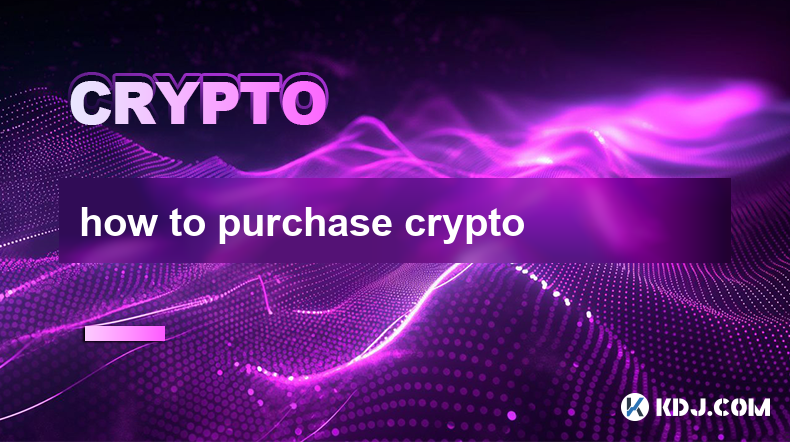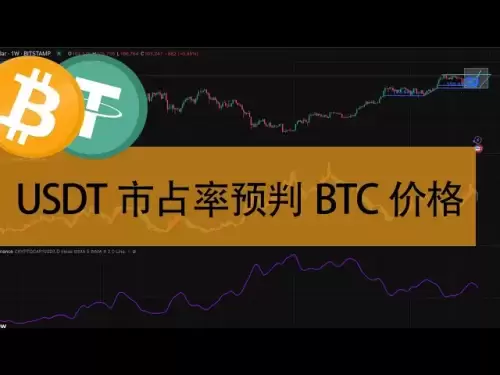-
 Bitcoin
Bitcoin $103,835.5380
0.37% -
 Ethereum
Ethereum $2,508.8633
0.88% -
 Tether USDt
Tether USDt $0.9997
-0.05% -
 XRP
XRP $2.3940
0.83% -
 BNB
BNB $644.9166
0.24% -
 Solana
Solana $169.9176
1.01% -
 USDC
USDC $0.9994
-0.04% -
 Dogecoin
Dogecoin $0.2210
2.11% -
 Cardano
Cardano $0.7571
-1.75% -
 TRON
TRON $0.2729
1.38% -
 Sui
Sui $3.8374
0.98% -
 Chainlink
Chainlink $15.6893
2.15% -
 Avalanche
Avalanche $23.0032
1.11% -
 Stellar
Stellar $0.2915
0.52% -
 Hyperliquid
Hyperliquid $26.8445
0.40% -
 Shiba Inu
Shiba Inu $0.0...01458
2.32% -
 Hedera
Hedera $0.1943
0.45% -
 UNUS SED LEO
UNUS SED LEO $8.6726
-2.94% -
 Bitcoin Cash
Bitcoin Cash $398.6032
1.08% -
 Toncoin
Toncoin $3.1146
1.73% -
 Polkadot
Polkadot $4.7291
0.29% -
 Litecoin
Litecoin $98.3781
-2.04% -
 Monero
Monero $343.7146
2.22% -
 Bitget Token
Bitget Token $5.1337
2.12% -
 Pepe
Pepe $0.0...01284
3.66% -
 Dai
Dai $0.9998
0.00% -
 Pi
Pi $0.7420
8.84% -
 Ethena USDe
Ethena USDe $1.0005
-0.03% -
 Bittensor
Bittensor $428.1693
2.03% -
 Uniswap
Uniswap $5.9572
1.13%
how to purchase crypto
When selecting a cryptocurrency exchange, prioritize reputation, supported cryptos, fees, and robust security measures like 2FA and cold storage.
Jan 29, 2025 at 04:12 am

How to Purchase Crypto
Key Points:
- Choose a reputable cryptocurrency exchange
- Consider the fees associated with buying crypto
- Select a payment method to fund your account
- Place an order to buy crypto
- Store your crypto securely
Step 1: Choose a Reputable Cryptocurrency Exchange
There are numerous cryptocurrency exchanges available, each with its own features, fees, and security measures. When selecting an exchange, consider the following factors:
- Reputation and track record: Choose an exchange that has a solid reputation for security and reliability. Check online reviews and forums for feedback from other users.
- Supported cryptocurrencies: Ensure that the exchange offers the cryptocurrencies you wish to purchase.
- Fees: Cryptocurrency exchanges charge a variety of fees, including trading fees, deposit fees, and withdrawal fees. Compare fees between exchanges to find the most cost-effective option.
- Security measures: Assess the exchange's security measures, such as two-factor authentication (2FA) and cold storage for crypto assets.
Step 2: Consider the Fees Associated with Buying Crypto
Cryptocurrency exchanges charge various fees for buying crypto. These fees can vary depending on the exchange, the payment method used, and the amount of crypto purchased. Common fees include:
- Trading fees: Fees charged for executing trades on the exchange.
- Deposit fees: Fees charged for depositing funds into your account.
- Withdrawal fees: Fees charged for withdrawing crypto from your account.
- Network fees: Fees charged by the blockchain network for processing transactions.
Step 3: Select a Payment Method to Fund Your Account
Several payment methods are available to fund your cryptocurrency exchange account, including:
- Bank transfer: A traditional bank transfer from your bank account to the exchange.
- Credit/debit card: Purchasing crypto with a credit or debit card is convenient but may come with higher fees.
- PayPal: Some exchanges allow you to fund your account using PayPal, a popular online payment service.
- Cryptocurrency: If you already own cryptocurrency, you can transfer it to your exchange account to purchase more.
Step 4: Place an Order to Buy Crypto
Once your account is funded, you can place an order to buy crypto. On the exchange interface, select the cryptocurrency you wish to purchase, specify the amount, and choose a trade type (e.g., market order, limit order).
Step 5: Store Your Crypto Securely
After purchasing crypto, it is crucial to store it securely to protect against theft or loss. You have several options for crypto storage:
- Hardware wallet: A physical device that securely stores your private keys offline.
- Software wallet: A digital app that stores your private keys on your computer or mobile device.
- Exchange wallet: An online wallet provided by the cryptocurrency exchange.
FAQs:
What are the best cryptocurrency exchanges for beginners?
- Coinbase and Binance are popular choices among beginners due to their user-friendly interfaces and a wide selection of cryptocurrencies.
What payment methods are most convenient for purchasing crypto?
- Bank transfers and debit cards are the most convenient methods, but credit cards may have higher fees.
How do I choose between a hardware wallet and a software wallet?
- A hardware wallet provides superior security, while a software wallet is more convenient and accessible. The choice depends on the value of your crypto and your risk tolerance.
Is it safe to store crypto on an exchange?
- Storing crypto on an exchange is less secure than a hardware or software wallet, but it can be more convenient for occasional purchases and trades.
How can I track the performance of my crypto investments?
- Use cryptocurrency tracking apps or visit websites like CoinMarketCap and CoinGecko to monitor the prices and trends of different cryptocurrencies.
Disclaimer:info@kdj.com
The information provided is not trading advice. kdj.com does not assume any responsibility for any investments made based on the information provided in this article. Cryptocurrencies are highly volatile and it is highly recommended that you invest with caution after thorough research!
If you believe that the content used on this website infringes your copyright, please contact us immediately (info@kdj.com) and we will delete it promptly.
- Judge Analisa Torres Denies a Joint Motion from Ripple and the SEC
- 2025-05-18 16:10:13
- French Government to Provide Security Briefings and Priority Access to Emergency Services for Crypto Entrepreneurs and Their Families
- 2025-05-18 16:10:13
- Event recap: TRUMP token and Trump's dinner
- 2025-05-18 16:05:16
- Distrust Spreads Across Cryptocurrency Market-Making Structure Following Token Crash of Movement (MOVE) and MANTRA (OM)
- 2025-05-18 16:05:16
- Meme Market Flips into Overdrive: 3 Explosive Coins to Watch
- 2025-05-18 16:00:31
- Solana’s Favorite Hat-Wearing Meme Coin Is on the Move Again
- 2025-05-18 16:00:31
Related knowledge

What is Ethereum’s Slashing mechanism and how to punish malicious behavior?
Feb 20,2025 at 03:08am
Key PointsOverview of slashingDifferent types of slashing in EthereumIncentives and consequences of slashingIdentifying and reporting slashed validatorsOngoing discussions and potential improvementsEthereum's Slashing Mechanism: Punishing Malicious BehaviorEthereum's slashing mechanism is an essential tool for ensuring network security and punishing mal...

What is the verifier node of Ethereum and how to become a verifier?
Feb 19,2025 at 06:00pm
The Verifier Node of Ethereum: A Comprehensive GuideKey Points:What is a Verifier Node?How to Become a Verifier NodeResponsibilities and Rewards of a Verifier NodeMinimum Requirements for Becoming a Verifier NodePotential Difficulties in Running a Verifier Node1. What is a Verifier Node?A Verifier Node is an independent entity on the Ethereum network th...

What is Ethereum’s staking, and how to participate and earn money?
Feb 19,2025 at 04:37pm
Key Points:Understanding Ethereum's Staking MechanismSteps to Participate in StakingBenefits and Rewards of StakingSecurity and Risk ConsiderationsTechnical Requirements and Hardware OptionsPotential Challenges and Troubleshooting TipsFAQs on Ethereum StakingWhat is Ethereum's Staking?Proof-of-Stake (PoS) is a consensus mechanism used in blockchain netw...

What is Ethereum’s DAO (Decentralized Autonomous Organization) and how does it work?
Feb 20,2025 at 03:12am
Key PointsDefinition and Structure of a DAOGovernance and Decision-Making in DAOsBenefits and Use Cases of DAOsChallenges and Limitations of DAOsWhat is Ethereum's DAO (Decentralized Autonomous Organization) and How Does It Work?Definition and Structure of a DAOA Decentralized Autonomous Organization (DAO) is an innovative governance and management fram...

What is Ethereum's multi-signature wallet and how to improve security?
Feb 20,2025 at 02:18pm
Key Points:Understanding the Concept of a Multi-Signature WalletBenefits and Drawbacks of Multisig WalletsRequirements for Setting Up a Multisig WalletStep-by-Step Guide to Generating a Multisig WalletImplementing Strategies for Enhanced Security1. Understanding the Concept of a Multi-Signature WalletA multi-signature (multisig) wallet in the Ethereum e...

What is Ethereum's oracle and how to provide data for smart contracts?
Feb 21,2025 at 01:30am
Key Points:Understanding the concept of oracles in EthereumExploring different types of oraclesDetailed guide on how to provide data for smart contractsAddressing potential challenges and considerationsWhat is Ethereum's Oracle?Oracles are crucial components in the Ethereum ecosystem, enabling smart contracts to access real-world data and off-chain even...

What is Ethereum’s Slashing mechanism and how to punish malicious behavior?
Feb 20,2025 at 03:08am
Key PointsOverview of slashingDifferent types of slashing in EthereumIncentives and consequences of slashingIdentifying and reporting slashed validatorsOngoing discussions and potential improvementsEthereum's Slashing Mechanism: Punishing Malicious BehaviorEthereum's slashing mechanism is an essential tool for ensuring network security and punishing mal...

What is the verifier node of Ethereum and how to become a verifier?
Feb 19,2025 at 06:00pm
The Verifier Node of Ethereum: A Comprehensive GuideKey Points:What is a Verifier Node?How to Become a Verifier NodeResponsibilities and Rewards of a Verifier NodeMinimum Requirements for Becoming a Verifier NodePotential Difficulties in Running a Verifier Node1. What is a Verifier Node?A Verifier Node is an independent entity on the Ethereum network th...

What is Ethereum’s staking, and how to participate and earn money?
Feb 19,2025 at 04:37pm
Key Points:Understanding Ethereum's Staking MechanismSteps to Participate in StakingBenefits and Rewards of StakingSecurity and Risk ConsiderationsTechnical Requirements and Hardware OptionsPotential Challenges and Troubleshooting TipsFAQs on Ethereum StakingWhat is Ethereum's Staking?Proof-of-Stake (PoS) is a consensus mechanism used in blockchain netw...

What is Ethereum’s DAO (Decentralized Autonomous Organization) and how does it work?
Feb 20,2025 at 03:12am
Key PointsDefinition and Structure of a DAOGovernance and Decision-Making in DAOsBenefits and Use Cases of DAOsChallenges and Limitations of DAOsWhat is Ethereum's DAO (Decentralized Autonomous Organization) and How Does It Work?Definition and Structure of a DAOA Decentralized Autonomous Organization (DAO) is an innovative governance and management fram...

What is Ethereum's multi-signature wallet and how to improve security?
Feb 20,2025 at 02:18pm
Key Points:Understanding the Concept of a Multi-Signature WalletBenefits and Drawbacks of Multisig WalletsRequirements for Setting Up a Multisig WalletStep-by-Step Guide to Generating a Multisig WalletImplementing Strategies for Enhanced Security1. Understanding the Concept of a Multi-Signature WalletA multi-signature (multisig) wallet in the Ethereum e...

What is Ethereum's oracle and how to provide data for smart contracts?
Feb 21,2025 at 01:30am
Key Points:Understanding the concept of oracles in EthereumExploring different types of oraclesDetailed guide on how to provide data for smart contractsAddressing potential challenges and considerationsWhat is Ethereum's Oracle?Oracles are crucial components in the Ethereum ecosystem, enabling smart contracts to access real-world data and off-chain even...
See all articles
























































































